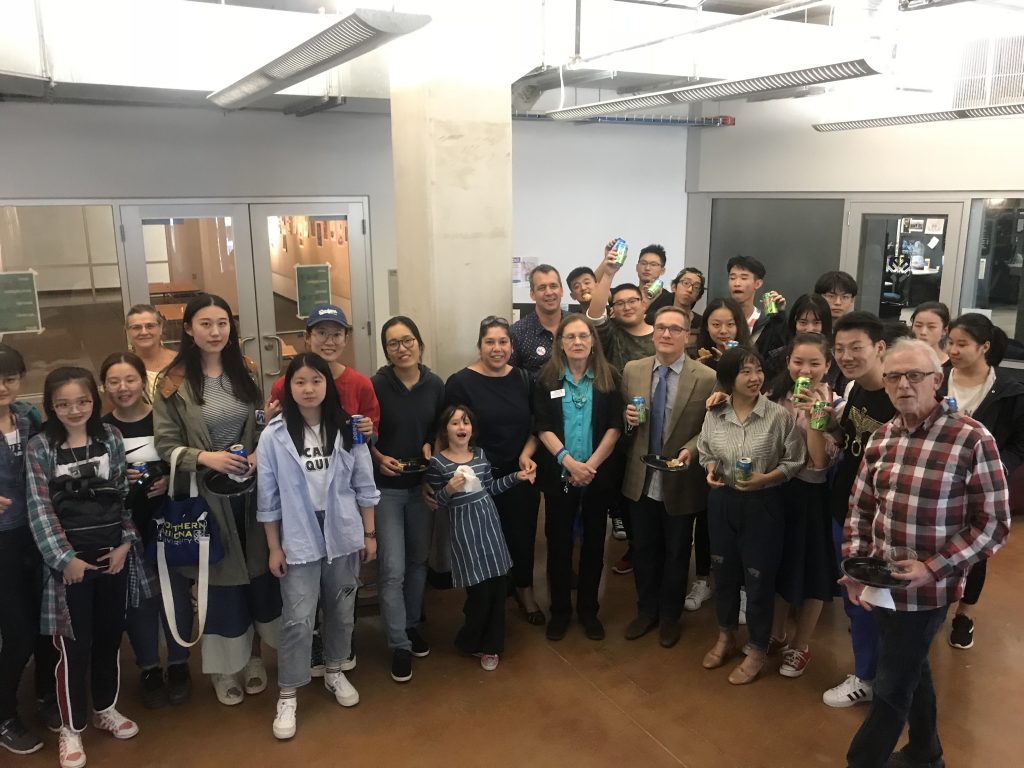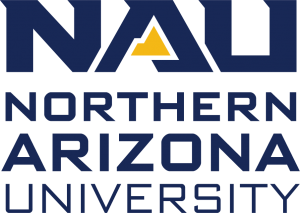Nearly 200 students from Chinese universities have made their way to Flagstaff to study at Northern Arizona University this school year as part of the Sino-American 1+2+1 program. A collaboration between the American Association of State Colleges and Universities (AASCU) and the China Center for International Education (CCIE), the program allows Chinese undergraduate and graduate students to attend a participating AASCU institution for two years of their academic career and earn dual degrees from their home institution and their host institution.
Since its inception in 2001, the program has grown to be the largest of its kind. NAU was an early adopter of the 1+2+1 initiative, joining the program in 2005 as just the fourth American university to do so. Starting with a group of 16 students, the program has grown tremendously during its time at NAU; this year’s group consists of 191 students. The significant increase in enrollment is due in part to a recruitment model put in place in 2015 that hones in on major-specific partnership recruitment rather than the multi-disciplinary recruitment model of past years.
The success of the revised model is evidenced in this fall’s group of students from Nanjing University of the Arts (NUA), one of the newer partner schools to work with NAU. With 43 students from NUA entering the creative media and film (CMF) major, the cohort is the largest NAU has seen from a single Chinese university. The students are all film majors enrolled in NUA’s international film program who have completed one year at NUA, will spend the next two at NAU, and then spend a final year back at NUA before earning their degrees (hence the program name of “1+2+1”).
“While this is an executive level agreement between NAU and NUA, it is, as I see it, a partnership with the NUA and the NAU film majors,” Paul Helford, principal lecturer for CMF, said about the level of student involvement and cooperation in the program.
In May, the two schools demonstrated their new partnership and the strategy of major-specific recruitment by co-hosting the first Sino-American film festival on the NUA campus in China. Fifteen student-produced films from NAU were chosen by School of Communication faculty to be shown at NUA’s film festival alongside the selected student films from NUA’s College of Media and Arts. Stateside, the same selected films from both schools were shown at the Orpheum Theatre in Flagstaff. The festival received substantial attention from NUA students and faculty especially. Helford, who served as the NAU academic consultant for the film festival, said there are already plans in place for next year’s film festival.
The film festival is just one example of how NAU works closely with Chinese universities to further the development of the 1+2+1 program and pave the way with new ideas to strengthen its relationship with partner schools.
Bruce Wang, director of Asian Academic Engagement and the person who oversees the operations of the 1+2+1 program, explained the level of involvement NAU has with Chinese schools throughout the recruitment process.
“NAU works with the Chinese universities on program articulation, faculty short-term lecture programs, scholars exchange, leadership visits, and other initiatives. Students in these Chinese universities are exposed to NAU’s presence on their campus and feel assured that they’ll succeed if they participate in these well-organized programs,” he said.
Indeed, the effort to encourage Chinese students to spend two years at NAU seems to be paying off. Aside from the NUA students entering CMF, the other 148 students in the 1+2+1 program come from a variety of universities in China and are pursuing degrees in computer science, hotel and restaurant management, English and mechanical engineering, to name a few.
“The 1+2+1 program is undoubtedly one of the most important global initiatives for NAU,” Wang said. “The program has positively impacted the Northern Arizona University campus in many ways, including student population diversification, faculty development and curriculum enrichment.”
Cheyenne Jarrette | NAU Communications
(928) 523-2282 | NAUComm@nau.edu




